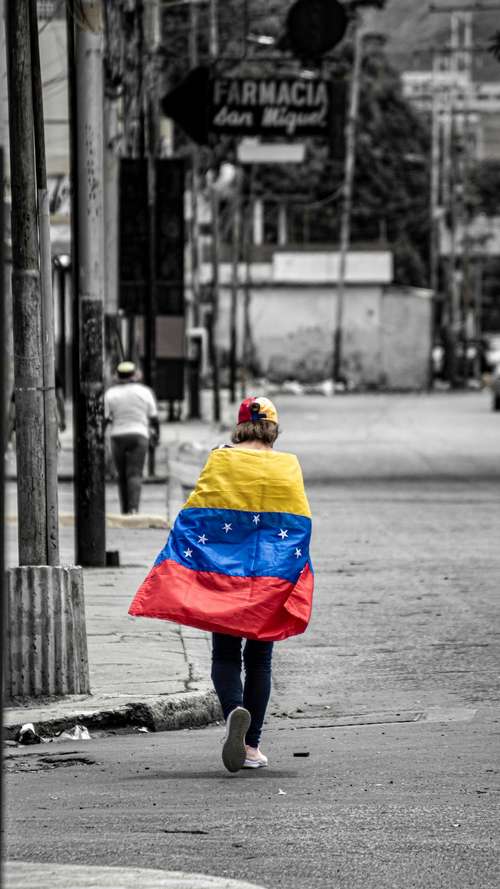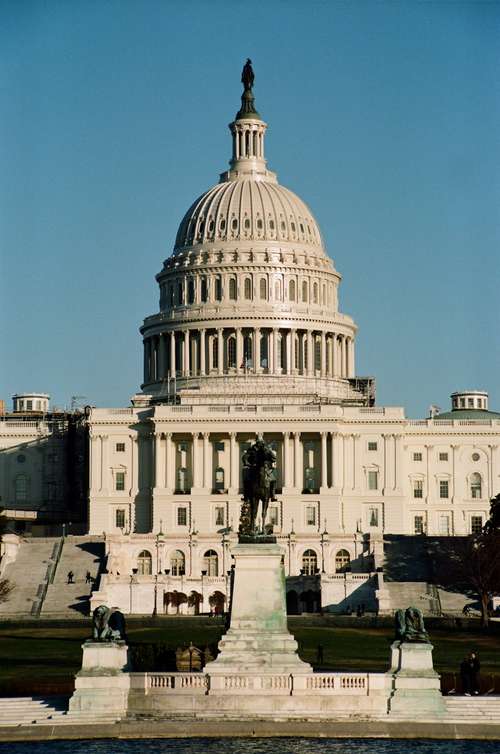In the face of unprecedented violence and conflict in the Middle East, iconic locations across Europe have taken a stand profoundly and symbolically. The Brandenburg Gate in Berlin, the Eiffel Tower in Paris, and even the halls of the European Parliament in Brussels have been bathed in the white and blue of Israel's flag.
These displays represent an extraordinary expression of solidarity with the Israeli people during a tumultuous period. Yet, within these gestures lies a tale of complex politics, diverse perspectives, and diplomatic intricacies that speak to the divisive and multifaceted nature of the Israel-Palestine conflict.
In this article, we explore these iconic locations and the various reactions, debates, and political responses they have generated in the heart of Europe. Through this lens, we aim to understand how these symbolic support acts reflect the intricate landscape of international politics and diplomacy.
Brandenburg Gate, Berlin

The Brandenburg Gate, a symbol of unity and peace, was illuminated with the white and blue of Israel's flag in a poignant gesture of support.
German Counselor Olaf Scholz posted a picture of the lit structure with the words "In Solidarity with Israel." This display conveyed a message of unity during a time of crisis, echoing the sentiment that most of the world stands with Israel.
Eiffel Tower, Paris

The Eiffel Tower, an enduring symbol of France, was bathed in the colors of Israel's flag as a powerful message against terrorism. Early last week, the tower was adorned with the Israeli flag as thousands of supporters stormed the streets to protest the attack on Israel by Gaza.
Bulgarian Parliament, Sofia

The illumination of the Bulgarian Parliament building with Israel's flag colors was on the night of October 8, 2023. This demonstrated how the Israel-Palestine conflict reverberates far beyond the immediate region. For many Bulgarians, Israel is an ally, and this act early shows their stance.
European Commission Headquarters, Brussels

In a demonstration that suggests that the EU blocs are standing together in solidarity with Israel, the European Commission has displayed the Israeli flag outside its Brussels headquarters.
Although this has been heavily criticized, It underlined the significance of a collective response to the crisis and European support for Israel. It showed that the EU institutions are willing to support a peaceful resolution.
The White House, United States

The United States has consistently reiterated Its stance in support of Israel. Aside from sending weaponry and diplomatic support to Israel, the Pentagon also lit up its exterior in the bold blue and white of Israel to show support.
French National Assembly

Two days after the Hamas attack, France adorns its National Assembly building with the flag of Israel to show support. This is another notable landmark, like the Eifel Tower, France has utilized to stand in solidarity with Israel.
Spain, Ireland, Belgium, and Luxembourg
Foreign ministers of these EU nations criticized the suspension of developmental aid to Palestine by the European Commission. This criticism demonstrated the need for consensus and collaboration among EU member states in their foreign policy decisions.
These locations and perspectives offer a glimpse into the complex and often divisive nature of the Israel-Palestine conflict. The displays of solidarity and the diplomatic discussions within the European Union illustrate the challenges of finding a balanced and practical approach to this ongoing crisis.
However, some Europeans believe the EU has taken sides by displaying the Israeli flag alongside their statements. They argue that the EU should also condemn Israeli actions and acknowledge the plight of Palestinians who have endured decades of conflict.
Finally, these expressions of solidarity, however, have not been without controversy. While they were seen as a powerful message against terrorism in Israel by some, there were dissenting voices.
Some individuals, such as Elena from Italy, felt that the rapid display of the Israeli flag on the EU Parliament building was irresponsible and didn't represent the complex realities of the Israel-Palestine conflict.




